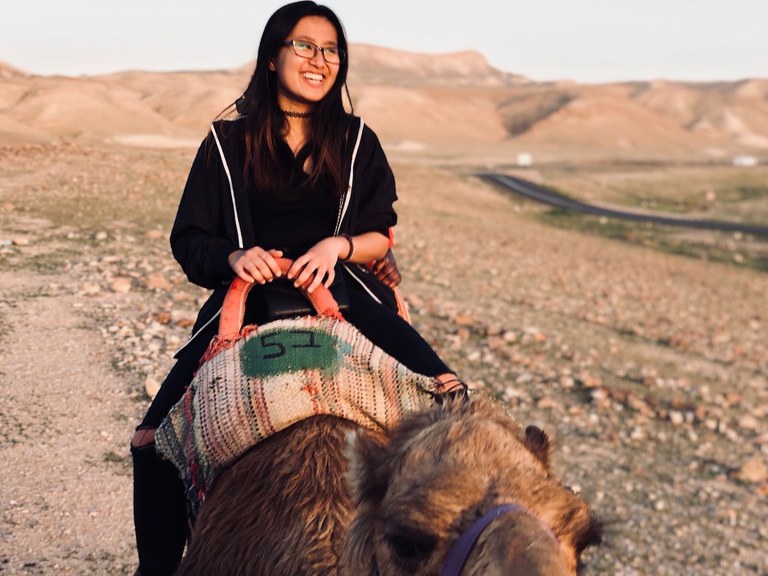Posted: March 20, 2018
Israel over the last decade has become an entrepreneurial powerhouse. Ten students and their professors traveled there in early March to check it out.
By Mark Gagnon
Harbaugh Entrepreneur and Innovation Faculty Scholar in the College of Agricultural Sciences
Ten exceptional Penn State students and three faculty members made the bold move to venture into the entrepreneurial culture of Israel and the Middle East during spring break in early March.
Penn State News Story: Students explore entrepreneurial spirit of Israel over spring break
As we headed out of State College, we faced bad weather and a windy bus ride. Many flights out of New York and Boston had been canceled. However we were fortunate to depart nearly on-time.
We also had the benefit of a fairly empty plane on the way to Tel Aviv. During our 10-hour flight our anticipation grew as each of us imagined what our week in Israel would be like. We weren't exactly sure of what we'd encounter and how this experience would enrich us.
Israel over the last decade has become an entrepreneurial powerhouse. Some of the world's most impactful companies have been born in Israel. Israeli start-up activity is on par with the major start-up hubs in the U.S. Our goal was to learn about entrepreneurship and innovation (E&I) in Israel and maybe even grow personally as well.
Finding Water and Herding Sheep
We went to work on relationship-building on day one. This started with our leadership training with Mr. Patrick Cohn at Neot Kedumim, located in the foothills east of Tel Aviv. Our newly formed team of students and faculty were put to work on the farm. First we worked together to source water and then we were tasked to herd sheep.
Using four ropes and nine people one of our students had to coordinate the activities of the other eight in order to lift a bucket with a hook and draw water from a well. After trial and error our student-team did just fine. Perhaps it was that we had six engineering students?
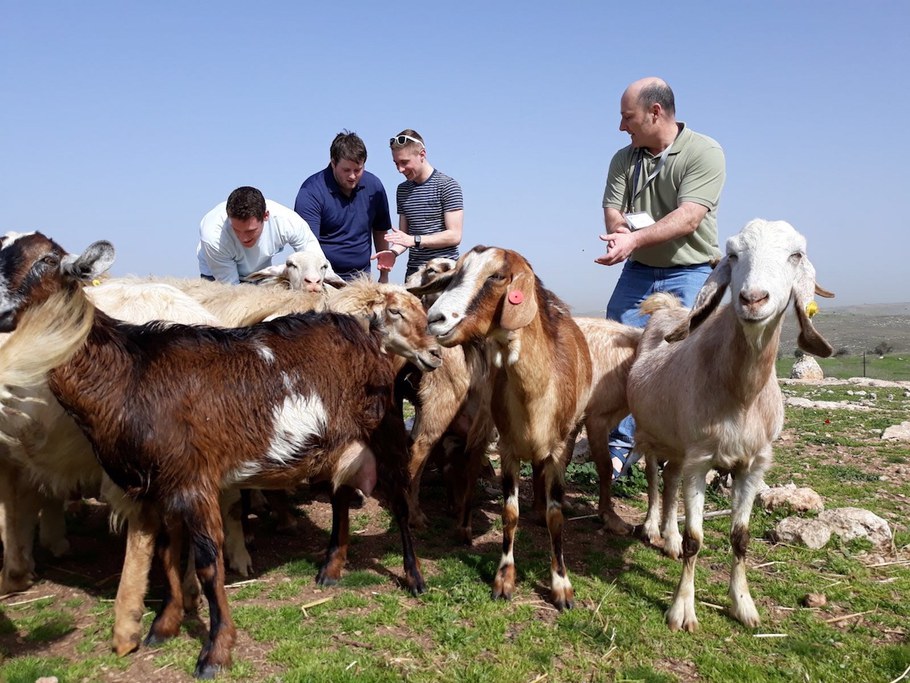
The water task taught us that we need to know our limits as leaders, communicate constantly and ask for help.
Our leadership training then turned to a more challenging task herding sheep and goats. We split into two teams and each team was tasked to move the sheep from one end of the corral to a small circle that was outlined with stones. The trick was to keep calling and moving. If one of us stopped the sheep stopped and confusion would quickly set in.
Of course there was the stubborn goat, who did his best to resist. He had to be convinced that better forage was in his future. Overall the sheep did better than we did. However we all grew that day in our understanding that building trust and maintaining momentum is essential to leadership.
Relationship building is core to Israel's E&I ecosystem and I'd suggest that it's a core societal value. I'd sure like to see an enhanced focus on relationship-building in the U.S.
Land of Stark Contrasts
Israel and the surrounding territories are a land of contrast. You head east from the rich coastal plains of Tel Aviv to the abundant foothills of Jerusalem. Head further southeast and you're in the majestic land of Judean Desert where Massada and the Dead Sea reside.
Beauty and shadowed complexity exist in the directness of the desert, hills, rocks and sea. I've witnessed the humble pride of the people of this region. They value family, tribe, history and are ever-hopeful for a better tomorrow.
The United States has the underpinnings of this richness. Yet, in many ways we are young in its discovery.
The Israelis we met are resourceful, vision-inspired, relationship-driven and direct. These qualities bode well for the uncertain start-up world in which failure is omni-present and on a rare occasion something goes really well that exemplifies the unexpected.
Israel has made significant progress with E&I, which is said to be in the country's cultural DNA. Maybe that's because Israel as a nation faces many constraints that we don't experience in the United States. Natural resources are one of the most limiting. In addition the population of Israel is approximately 8.5 million people, which makes the local market virtually a non-option.
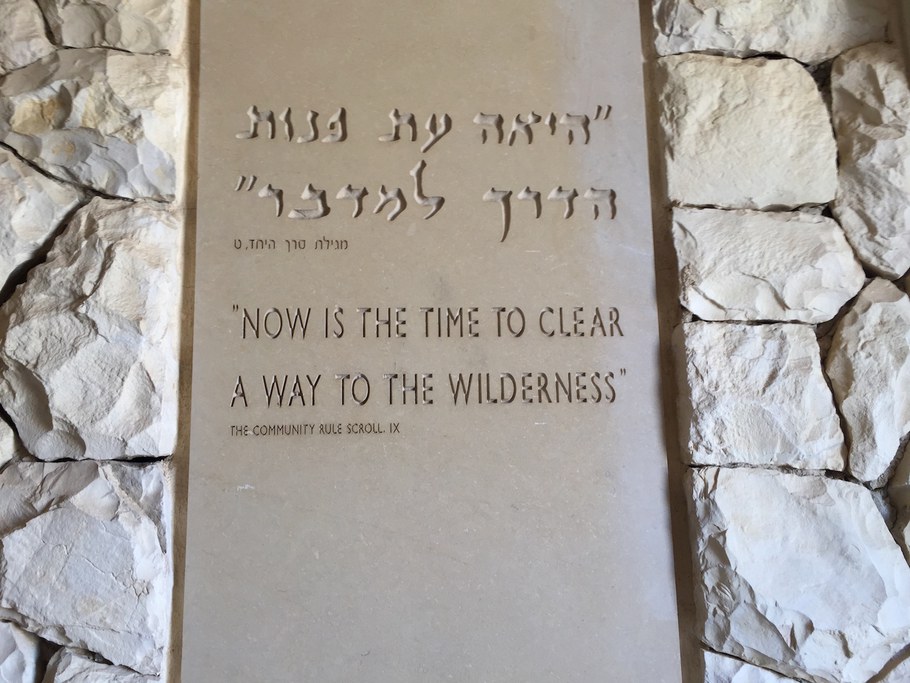
Israelis make do with what they have to move forward, which serves as one of the best examples of entrepreneurial bricolage in the world. Bricolage is making due with what you have on hand to get the job done. Start-up life requires this type of creative engineering. Change is constant, uncertainties abound and the job must get done with what you have.
We witnessed agricultural technology bringing life to Negev Desert with abundant harvest. Some of the best produce in the Middle East, Europe and Africa is grown in Israel. We were fortunate to enjoy the harvest bounty including fresh salads of greens, cucumbers and cherry tomatoes during every wonderful meal.
To be successful, E&I efforts must be fueled with vision. The people of Israel are inspired to build their very young, nearly 70 year-old nation in the desert. Resilience is needed to accomplish this vision and the people of Israel have plenty of stories of resilience since their origin.
Building and rebuilding is not new and finding peace and prosperity is the ultimate prize. This isn't easy to accomplish as resources are scarce, visions differ and the past confounds the future. Peoples, cultures, beliefs conflict, yet are rooted in the same desire for peace and prosperity. We witnessed this in Jerusalem where the nexus of these challenges took root in the Old City. The weight of the world seems to reside there.
Relationships drive E&I. Accomplishment doesn't happen in a vacuum. We were shown how communities of practice were brought together to apply technologies to address resource-intensive problems. A core Israeli practice is to use technology to increase the value of lower-value resources to solve problems that often consume high-value resources. As a result of applying technology, higher-value resources can then be re-deployed to grander challenges.
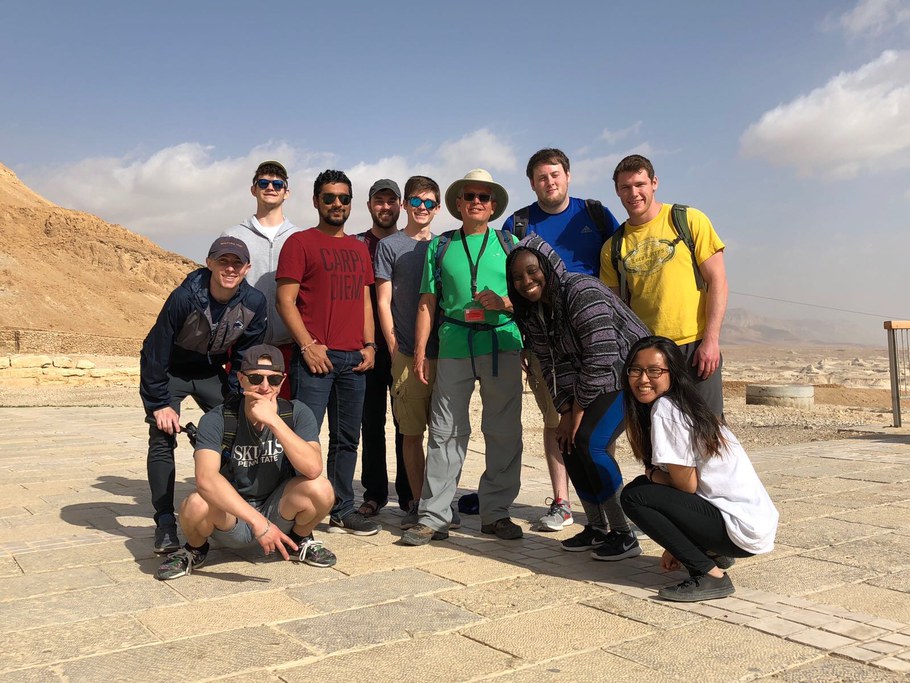
Speaking of young, our students have grown as a result of their journey. I enjoyed witnessing them encounter new customs, new foods and experiences. They are an exceptional lot and it was a joy for me as an educator to witness them leave their comfort zones, only to find a new happy acclimation and then to start the process once again while in Israel.
To me this is the core of global experience. One that all Penn State students should encounter. My hope is that this journey of growth continues.
Our goal was to learn about entrepreneurship and innovation in Israel and perhaps experience personal growth. Our mission was certainly accomplished.
I'd like to thank Dr. Anne Hoag, Director of The Intercollegiate Minor in Entrepreneurship and Innovation and Penn State's Office for Global Programs for facilitating an exceptional, first entrepreneurship embedded study experience. In addition I'd like to thank Mr. Marc Coles, J.D. of Ridgeback Business Development for guiding our Israel E&I journey.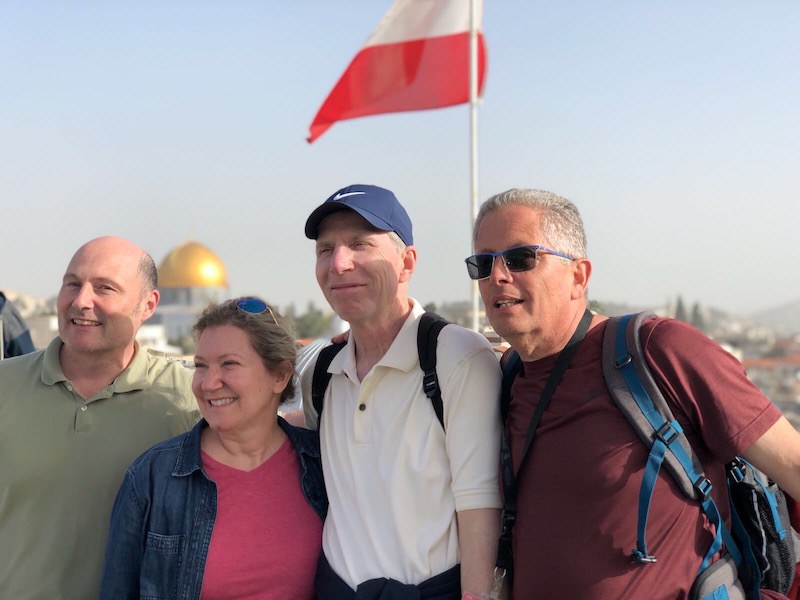
Social Media
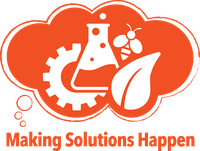
Social Media


